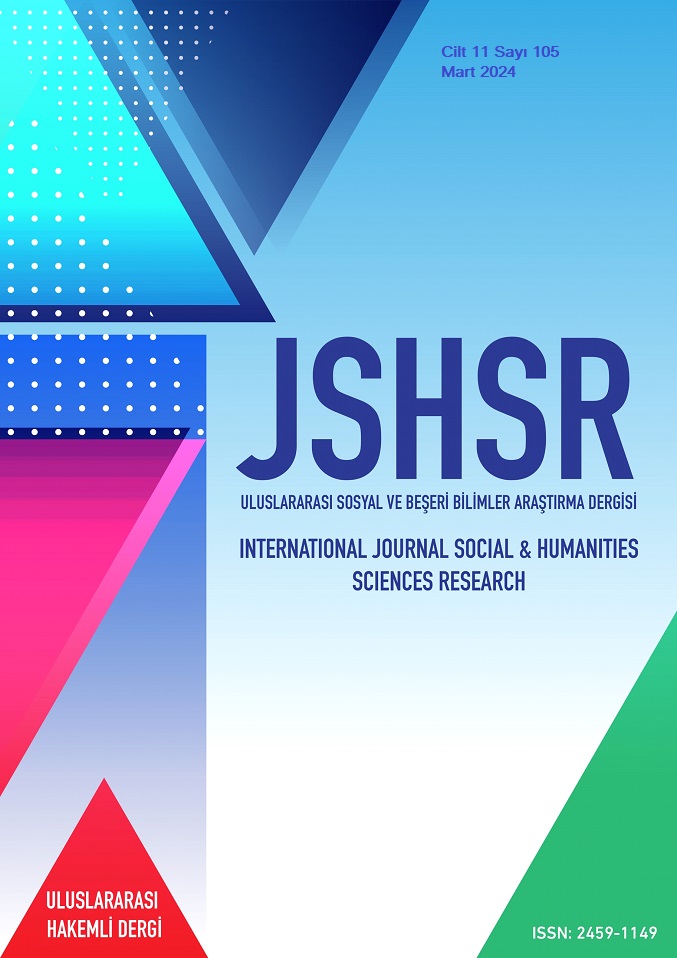A Research on Measuring the Satisfaction Level of Enterprise Resource Planning Software in Supply Chain Management
DOI:
https://doi.org/10.5281/zenodo.12607667Keywords:
Supply Chain Management, Employee Satisfaction, ERPAbstract
The concept of supply chain management refers to a comprehensive value flow from the supply of raw materials to after-sales services. Enterprises utilize enterprise resource planning (ERP) software to control the processes. Thus, all processes can be controlled on the flow and data are stored in a standardized manner. Necessary planning can be made on issues that directly affect the strategic goals of the enterprises. This software has advantages as well as disadvantages. For example, high purchasing and consultancy costs, difficulty in finding qualified staff, and resistance of employees to the new system. The aim of the study is to evaluate the perceptions of ERP system users. In this context, a satisfaction survey was conducted, and solution suggestions were presented for the success of the users in adapting to the ERP system.
References
Akkermans, H. A., Bogerd, P., Yücesan, E., & Van Wassenhove, L. N. (2003). The impact of ERP on supply chain management: Exploratory findings from a European Delphi study. European Journal of Operational Research, 284-301.
Bayraktaroğlu, S., Uluköy, M., & Akçi, Y. (2014). Kurumsal Kaynak Planlaması (KKP) kullanıcılarının memnuniyet düzeylerine ilişkin algılarının belirlenmesine yönelik ampirik bir çalışma. Yönetim ve Ekonomi, 299-310.
Costa, C. J., Ferreira, E., Bento, F. & Aparicio, M. (2016). Enterprise resource planning adoption and satisfaction determinants. Computers in Human Behavior, 63, 659- 671.
Çakirli, M. Y., Usta, S. K., & Serdarasan, Ş. (2020). Kurumsal kaynak planlama uygulamalarında karşılaşılan engellerin yapısal modellemesi ve analizi. Pamukkale Üniversitesi Mühendislik Bilimleri Dergisi, 26(4), 799-811.
Çalışır, F., & Çalışır, F. (2004). The Relation of interface usability characteristics,perceived usefulness, and perceived ease of use to end-user satisfaction with Enterprise Resource Planning (ERP) systems. Computers in Human Behavior, 505-515.
Çiçek, E., & Bay. M. (2007). Stratejik Küresel tedarik zinciri yönetimi ve lojistik. Sosyal Ekonomik Araştırmalar Dergisi, 7(13), 91-117.
Çetinoğlu, T., Kurnaz, N. & Şen, Y. (2011). Kurumsal kaynak planlaması: Yönetsel karar verme açısından CP Group uygulaması. Dumlupınar Üniversitesi Sosyal Bilimler Dergisi, 30, 141-154.
Dinçer, C. (2009). Tedarik zincirinde sipariş işleme süreci. Öneri Dergisi, 8(31), 191-196.
Dulkadir, B. (2012). Tekstil işletmelerinde kurumsal kaynak planlaması (ERP) kullanımındaki memnuniyet düzeyi ve Malatya ilinde bir araştırma. Akademik Yaklaşimlar Dergisi, 17-36.
Eren, A. S., & Balkar, O. E. (2020). The relationship between benefits of ERP implementation and supply chain performance: A study on Turkish manufacturing firms. İnönü University International Journal of Social Sciences, 255-269.
İnce, H., İmamoğlu, S. Z., Keskin, H., Akgün, A., & Efe, M. N. (2013). The impact of ERP systems and supply chain management practices on firm performance: Case of Turkish companies. Procedia Social and Behavioral Sciences, 1124-1133.
Keçek, G., & Yildirim, E. (2009). Kurumsal kaynak planlamasi (ERP) ve işletme açisindan önemi. Elektronik Sosyal Bilimler Dergisi, 8(29), 240-258.
Keskinkiliç, M., & İpkin, M. (2023). İşletmelerde ERP uygulamalarının dijital dönüşüm sürecine katkıları. AURUM Sosyal Bilimler Dergisi, 8(1), 49-74.
Mohanty, P. K., Sekhar, S. C., & Shahaida, P. (2022). Determinants of ERP adoption, user satisfaction, and user engagement. International Journal of Information System Modeling and Design, 13(1), 1-16.
Özer, Y., Yücel, A., & Yilmaz, M. (2003). Kurumsal Kaynak planlama sistemlerine yönelik kullanıcı algılarının analizi. Süleyman Demirel Üniversitesi İktisadi ve İdari Bilimler Fakültesi Dergisi, 8(2), 77-94.
Sönmeztürk Bolatan, G. İ. (2019). Örgütsel Kültürün kurumsal kaynak planlaması projelerine etkisi. Çağ Üniversitesi Sosyal Bilimler Dergisi, 53-70.
Yildiz, M., Zerenler, M., & Tekin, M. (2001). Bilişim Teknolojilerindeki gelişmeler paralelinde tedarik. Selçuk Üniversitesi Sosyal Bilimler Meslek Yüksekokulu Dergisi, 4(1), 1-16.
Yakıt, O., & Özkan, Y. (2017). Kurumsal Kaynak planlama sistemlerinde yapay sinir ağlarının değerlendirilmesi yaklaşımı. Siyaset, Ekonomi ve Yönetim Araştırmaları Dergisi, 287-296.
Karadede, A. ve Baykoç, Ö. (2006) Kurumsal kaynak planlama (KKP) uygulaması sonrası işletmelerin yaşadığı sorunlar. Gazi Üniversitesi Mühendislik-Mimarlık Fakültesi Dergisi, 21(1).
Taşpınar, A. (2019). Türkiye’de ERP uygulamalarının değerlendirilmesi: Oracle & SAP. Yüksek Lisans Tezi, Bahçeşehir Üniversitesi.
Downloads
Published
How to Cite
Issue
Section
License
Copyright (c) 2024 INTERNATIONAL JOURNAL OF SOCIAL HUMANITIES SCIENCES RESEARCH

This work is licensed under a Creative Commons Attribution 4.0 International License.


